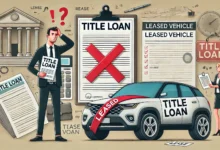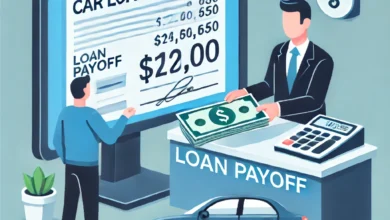How to Get a Car Loan When Self-Employed: A Comprehensive Guide

So, you’re self-employed and looking to get a car loan? First off, congratulations on being your own boss! It’s an exciting journey, but let’s be honest—it comes with its own set of challenges, especially when it comes to things like securing a car loan. But don’t worry, I’m here to walk you through the entire process, step-by-step, so you can drive away in that car you’ve been eyeing.
How to get a car loan when self employed in 2024
Understanding the Basics
When you’re self-employed, lenders look at you a bit differently compared to someone with a traditional job. They want to make sure you have a steady income to pay back the loan. Here’s what you’ll need to consider:
- Proof of Income: Unlike salaried employees who can provide pay stubs, you’ll need to show your tax returns, bank statements, and profit and loss statements to prove your income.
- Credit Score: Your credit score plays a big role. A good score can increase your chances of getting approved and getting better interest rates.
- Down Payment: The bigger the down payment, the better. It reduces the loan amount and shows the lender that you’re serious and financially stable.
Step-by-Step Guide
1. Get Your Financial Documents in Order
First things first, gather all the necessary documents. Here’s a checklist for you:
- Tax Returns: Lenders typically want to see at least two years of tax returns.
- Bank Statements: These help show your income flow. Usually, the past six months of statements are needed.
- Profit and Loss Statements: These give a snapshot of your business’s financial health.
- Business Licenses: Proof that your business is legitimate.
2. Check Your Credit Score

Before you start applying, check your credit score. If it’s not where you want it to be, take some time to improve it. Pay off debts, correct any errors on your credit report, and avoid taking on new credit.
3. Save for a Down Payment
The more you can put down upfront, the less you’ll need to borrow. A good rule of thumb is to aim for at least 20% of the car’s purchase
4. Shop Around for Lenders

Not all lenders are the same. Some specialize in working with self-employed individuals. Start with your own bank or credit union, and then check out online lenders and other financial institutions. Compare interest rates, loan terms, and requirements.
5. Pre-Approval
Getting pre-approved for a loan gives you a clear idea of how much you can borrow and what your monthly payments will be. It also shows sellers that you’re a serious buyer. To get pre-approved, you’ll need to provide all the financial documents we mentioned earlier.
6. Consider a Co-Signer
If you’re having trouble getting approved on your own, a co-signer can help. This is someone with good credit who agrees to take responsibility for the loan if you can’t pay. Just remember, this is a big ask, as it affects their credit too.
Navigating Potential Hurdles
Let’s talk about some common challenges and how to overcome them.
- Irregul best online pharmacy with fast delivery buy kamagra oral jelly online with the lowest prices today in the USAar Income: Self-employment often means fluctuating income. Lenders might worry about this. To counter it, show a strong financial history and have a solid down payment.
- Higher Interest Rates: Sometimes, self-employed borrowers face higher interest rates. Negotiate! If you’ve got good credit and a strong financial profile, use that to your advantage.
- Debt-to-Income Ratio: This is a biggie. Lenders look at how much of your income goes toward debt payments. Keep this ratio low by paying down existing debts before applying for a car loan.
Alternatives to Traditional Car Loans
If traditional car loans aren’t working out, don’t despair. There are other options:
- Personal Loans: These can be easier to get but might come with higher interest rates.
- Home Equity Loans: If you own a home, you can use your home equity as collateral. Be cautious, though, because your home is on the line.
- Lease: Leasing a car can be a good option if you don’t want to commit to a long-term loan. Just remember, at the end of the lease, you don’t own the car.
Final Tips
- Stay Organized: Keep all your documents in order and updated. It makes the process smoother and faster.
- Be Honest: Don’t try to fudge the numbers. Lenders have ways of checking your financial history.
- Consult a Financial Advisor: They can provide personalized advice based on your uniqu buy flagyl online in the best USA pharmacy https://careprimeclinic.com/wp-content/uploads/2025/08/png/buy-flagyl.html no prescription with fast delivery drugstoree situation.
Conclusion
Getting a car loan when you’re self-employed might seem daunting, but it’s definitely doable with the right preparation.















